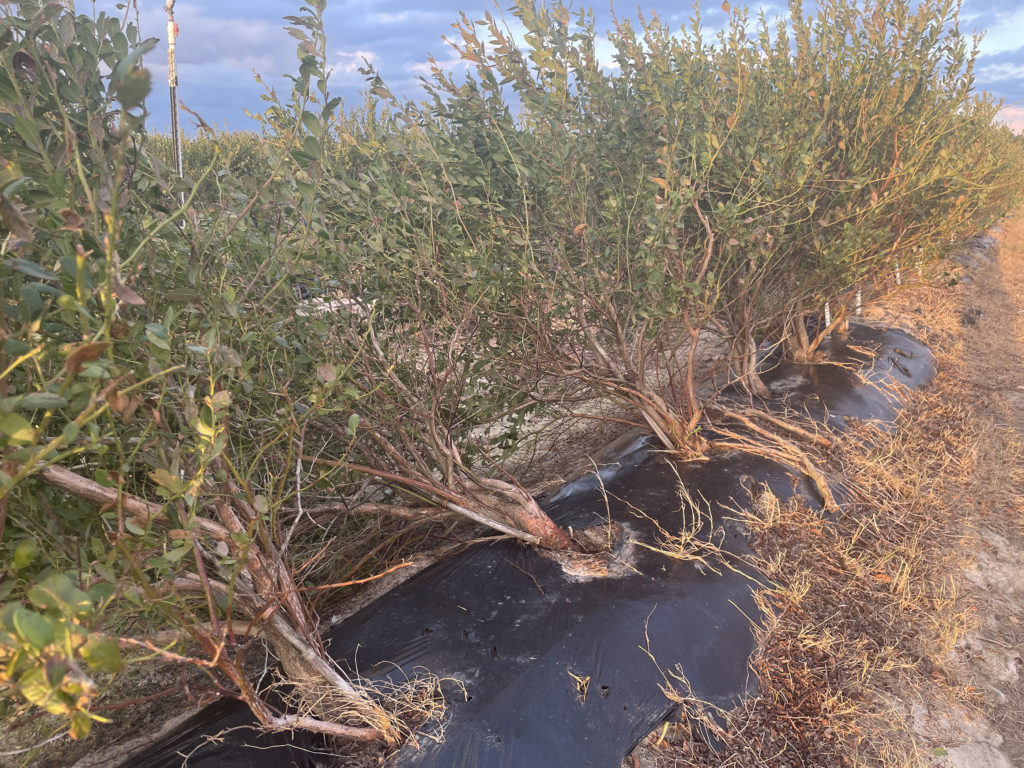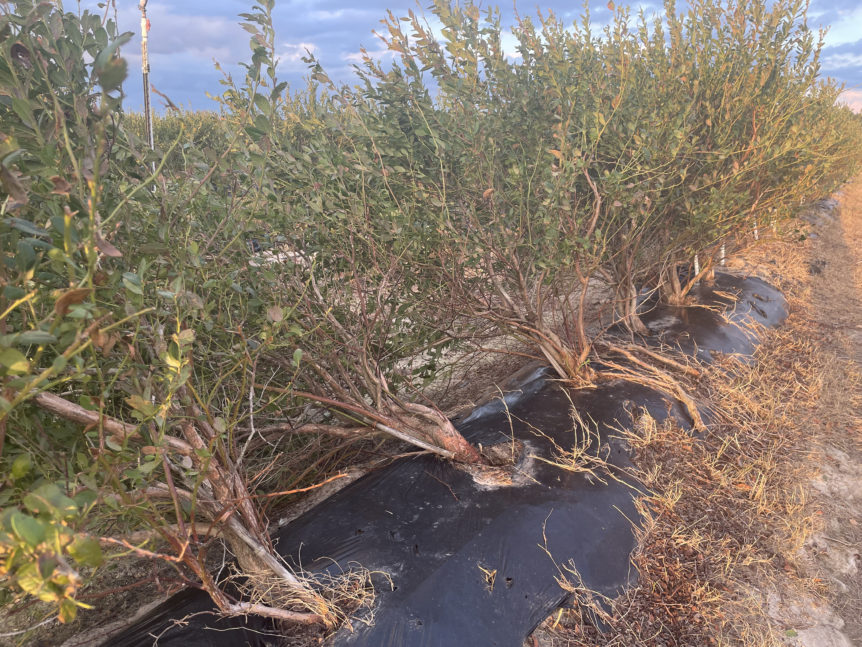Hurricane Helene left devastation in its wake following its trek through Georgia on Sept. 27. One of the main crops impacted were blueberries.

Jonathan Oliver, University of Georgia (UGA) assistant professor and small fruits pathologist, noted in the UGA Blueberry Extension Blog that blueberry disease management should be a focus of blueberry producers moving forward.
“In areas that got a lot of rain but relatively minor damage caused by wind, the major disease concerns are similar to those I mentioned in my blog post a couple months ago following Hurricane/Tropical Storm Debby,” Oliver wrote.
“These include concerns with Phytophthora root rot, algal stem blotch and leaf spot diseases. While we are getting closer to the end of the growing season for blueberries, we typically recommend continued maintenance of plants in southern Georgia through the end of October, when the plants begin moving from actively growing and setting buds into a time of plant dormancy. As such, and especially given the recent rainfalls, control of these diseases is likely to remain important for the next four weeks or so in southern Georgia.”
Other Concerns
In any areas where wind damage occurred, limb and stem breakage may lead to wounds on plants that can serve as entry points for fungal pathogens such as Botryosphaeria. These fungi can cause Botryosphaeria Stem Blight disease. Fungicide applications, such as Pristine or Switch, aimed at protecting wounds on affected plants may be beneficial.
“Plants that have blown over and are being reset or have major stem or limb breaks, whether they recover or not will depend on a lot of factors with diseases being a (possibly minor) part of the equation. That being said, applying fungicides to protect damaged root systems from root rots, such as Phytophthora, and open wounds from stem blights, such as Botryosphaeria, will certainly not hurt (and may help) in the recovery process,” Oliver added.










